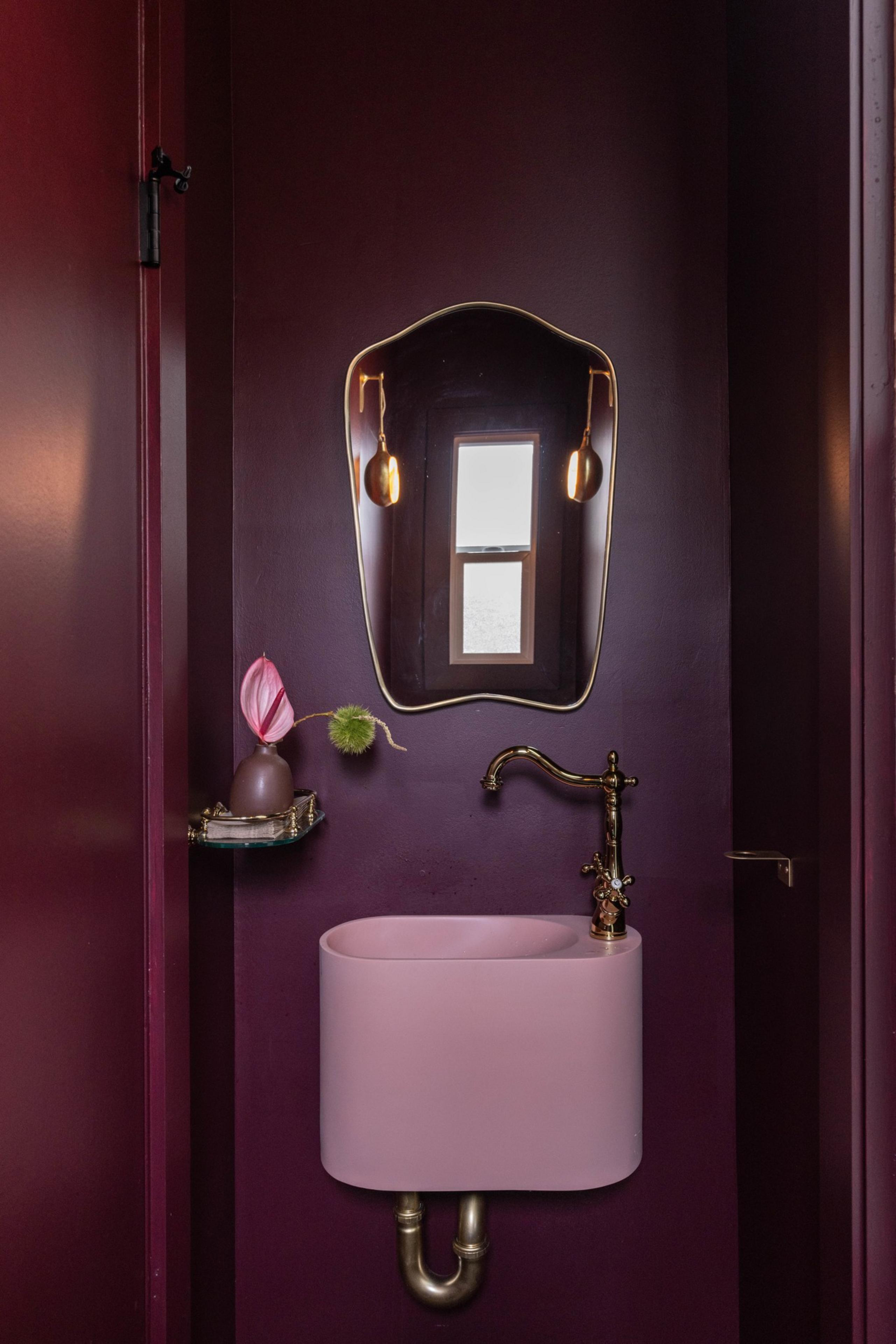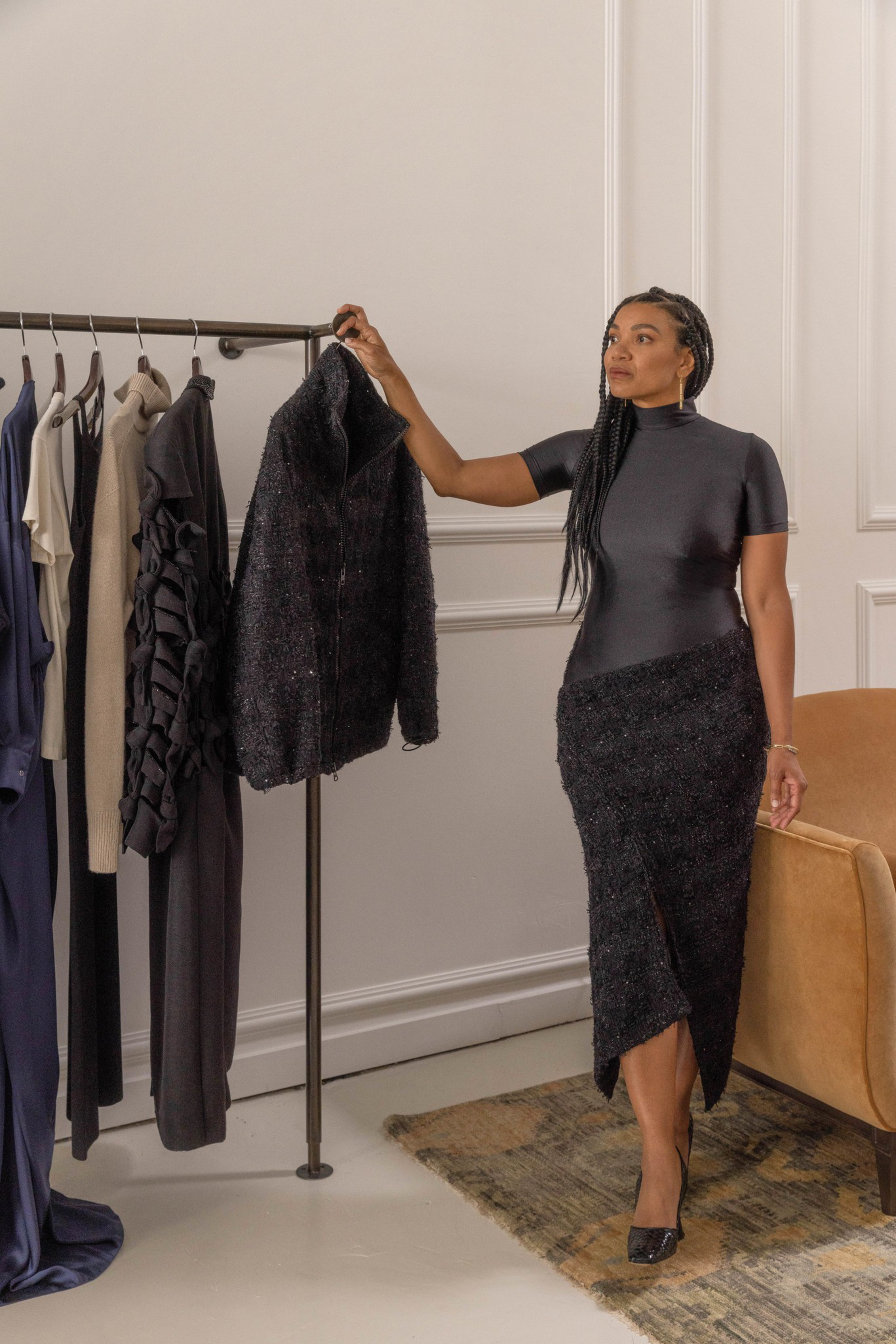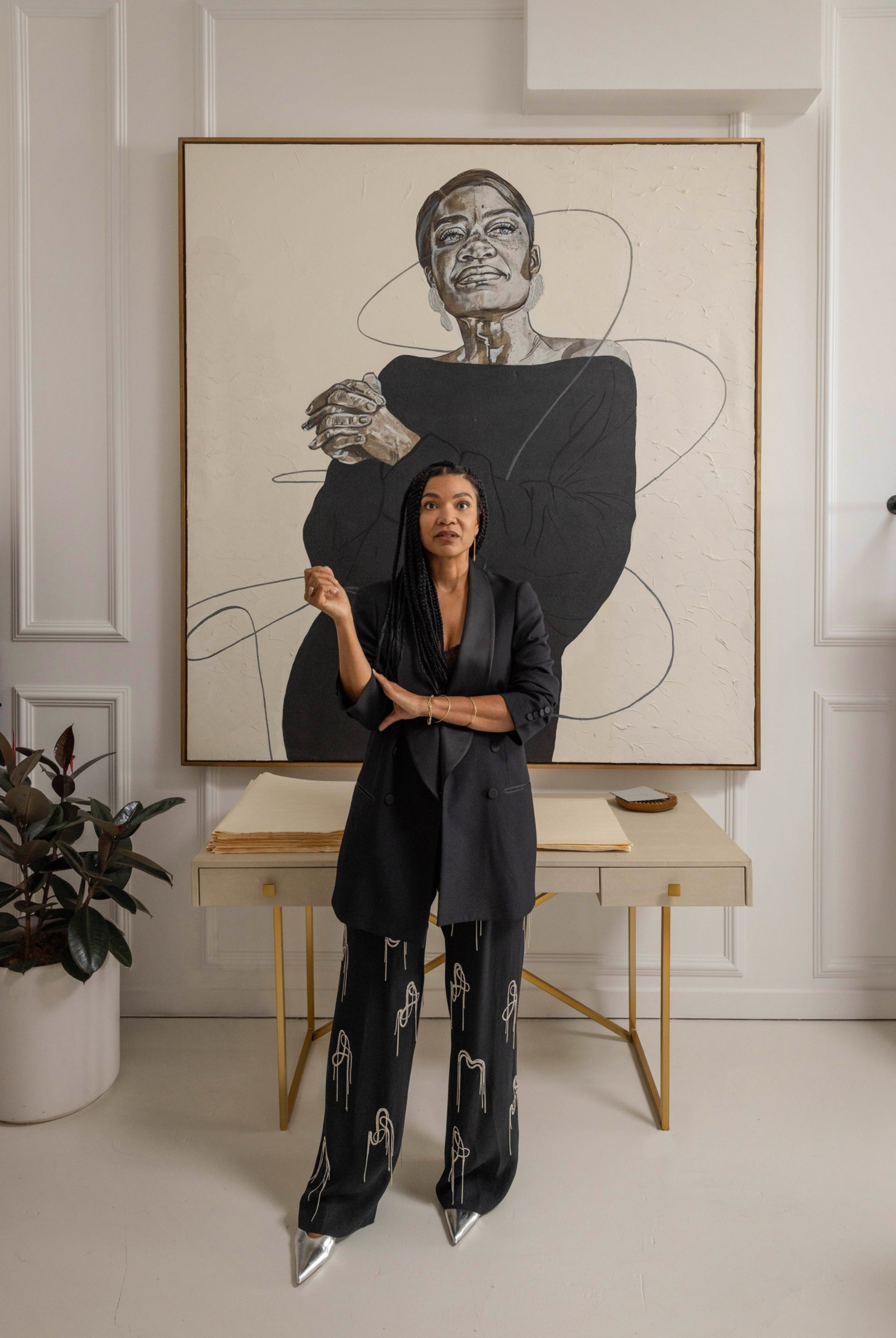This is The Looker, a column about design and style from San Francisco Standard editor-at-large Erin Feher.
Sherri McMullen was on her way to dinner at Spruce in Laurel Heights in January when she passed a vacant storefront on the same block of Sacramento Street as the veteran boutiques Susan and Betty Lin. So McMullen, owner of an eponymous fashion destination in Oakland, stopped to dial the number on the sign. Not long after, she and her team were clinking champagne glasses inside the empty storefront, celebrating a new chapter for the storied retailer.
Her boutique, McMullen (opens in new tab), has been a Bay Area fashion destination for 17 years, drawing clients such as Solange Knowles and Ayesha Curry and shoutouts in Vogue and WWD. Now, after nearly two decades cementing her status as a sartorial adviser and star-maker for emerging designers, she has landed in San Francisco.
“We have such an amazing customer base here in San Francisco,” says McMullen. “Last year, we started doing pop-ups at clients’ homes around here, and the response really assured me that this was the right move.”


The boutique opened in mid-August, with interiors by Noz Nozawa, an in-demand designer known as much for her striking personal style (opens in new tab) as for her distinctive spaces (opens in new tab). Similarly, McMullen’s social media dispatches from Fashion Week in Paris and New York are closely watched by insiders looking for the next big thing: Diotima, Khiry, Aisling Camps, Kamperett, Christopher John Rogers — all were identified early by the retail maven.
In 2000, McMullen was working as a buyer at Neiman Marcus in Dallas when Williams Sonoma recruited her to San Francisco to be the textile buyer for a new brand, Pottery Barn Kids. She and a small team (including Laura Alber, now CEO of William Sonoma Inc.) opened the brand’s first stores. “Laura was a visionary. We built a brand that I am really proud of,” says McMullen.
A native of Oklahoma City, McMullen grew up surrounded by women for whom dressing well was a ritual and way of life. “My aunts, my grandmother, my mother — they were all very fashionable. My mom always had on lipstick and a dress,” she says, recalling the big hats of Sunday service and the colorful dresses and head wraps of evening card games. “I grew up seeing that and just really gravitating toward fashion. I still have some of my mom’s pieces in my closet.”


Her Oakland store features vintage photographs of the women in her family, dressed to the nines, as well as some poppy pastels and her logo rendered in glowing neon. By contrast, the new San Francisco shop feels more stately, with white walls and elegant crown molding.
“I studied the flagship in Oakland, and while there were elements there that I wanted to incorporate, we also wanted this store to be of San Francisco,” says Nozawa, who sourced mainly vintage furnishings for the space. “We wanted to bring in some Victoriana and a sort of stateliness to the design.”
For fans and followers of Nozawa and the high-octane rooms that populate her Instagram page, (opens in new tab) the restrained design might come as a surprise. “I’m a maximalist, but I’m also a million other things,” she says. “I’m happy to be underestimated or considered one thing — I’m just going to blow your brains with the next project.”
Nozawa says the interiors are in the service of elevating the visions of both McMullen and the designers whose creations hang in the shop. “We wanted to create a beautiful neutral box for us to be able to showcase all of the textures and colors on the racks. The clothing and accessories are meant to be the stars.”

The racks of the San Francisco shop are an ever-shifting constellation — subtly different in shape and tone from the Oakland location but with the same exquisite curation of highly coveted, established brands (Dries Van Noten, The Row, Tibi, Proenza Schouler, Rachel Comey), along with up-and-comers and a specific focus on brands led by women and people of color (the aforementioned Aisling Camps, Diotima, and Kamperett, as well as Khaite, Lisa Folawiyo, and Kimeze).
McMullen was the first retailer to feature designs by Rogers, who has since been named the American Womenswear Designer of the Year by the Council of Fashion Designers of America. She has been carrying the work of Comey and Ulla Johnson since they debuted. When asked how she knows which designers will hit, she is confidently coy.
“A big part of it is gut. Something moves me, and I feel like our customer is going to be moved in the same way. But everyone wants to know what the secret sauce is,” McMullen says with a smile. ”And I can’t give it up.”

McMullen at McMullen. | Source: Courtesy of John Merkl & Lauren Andersen of SEN Creative
